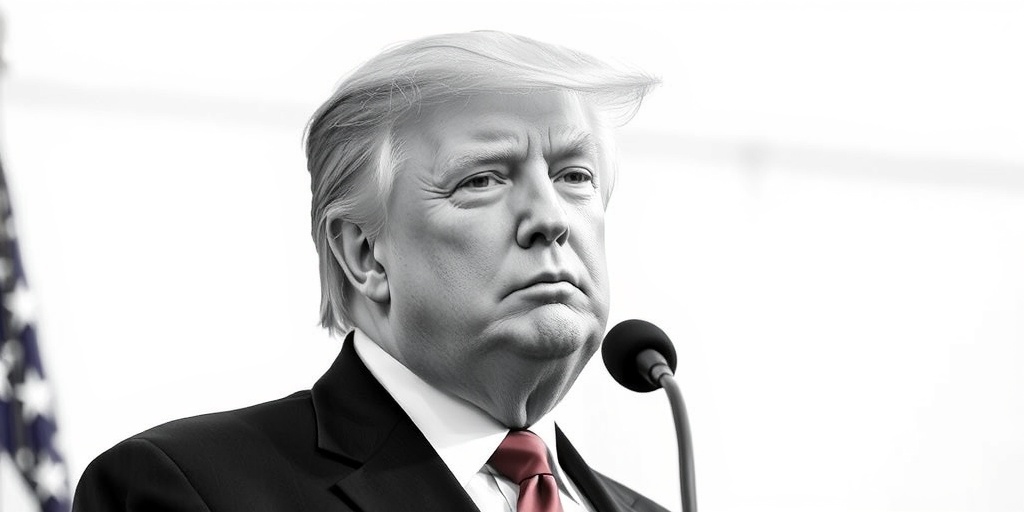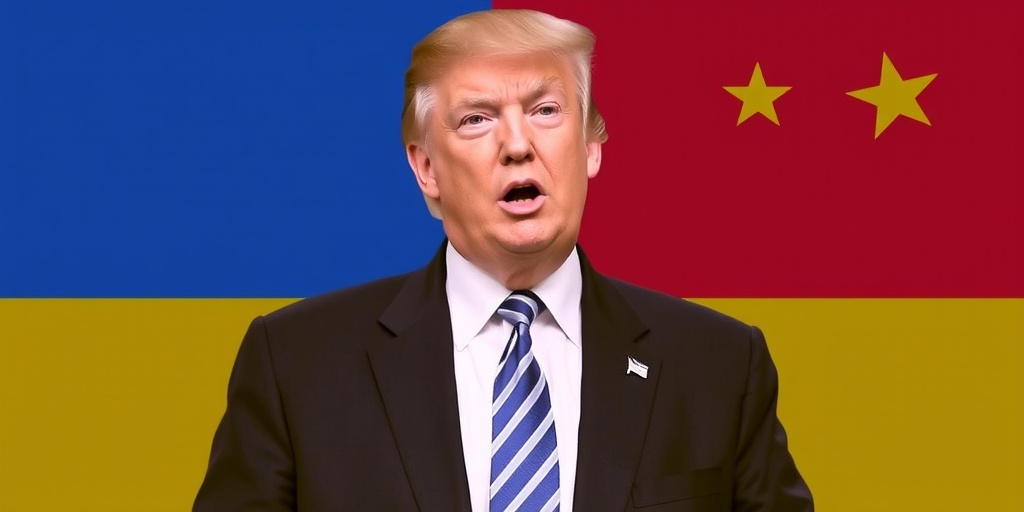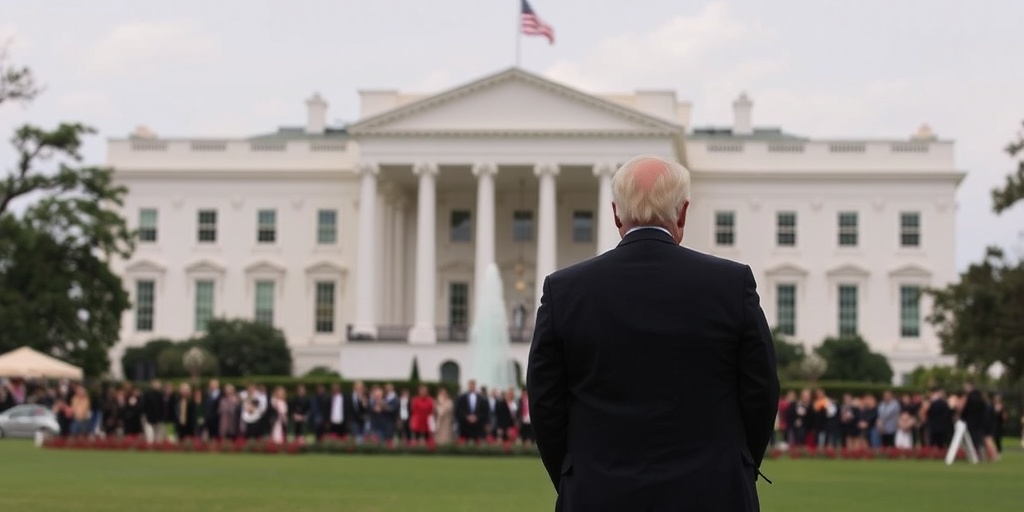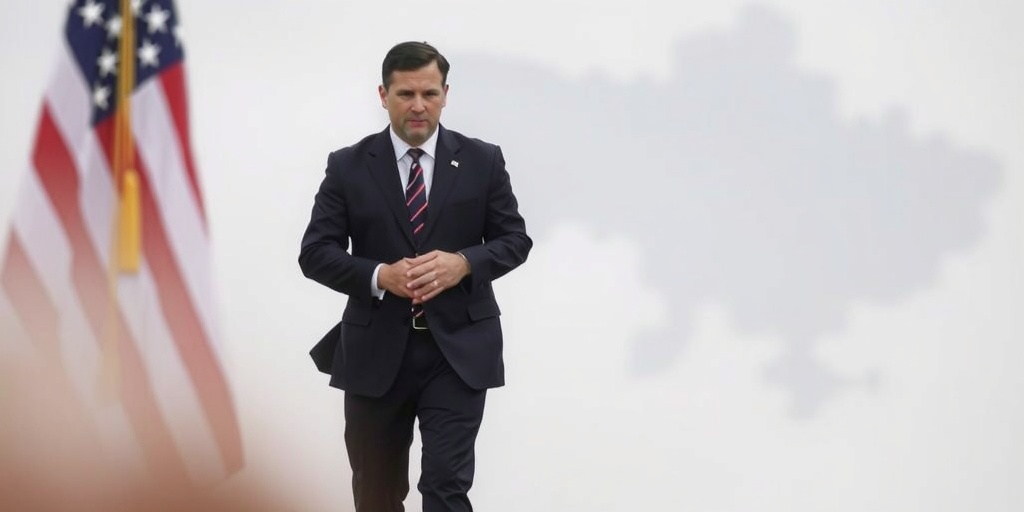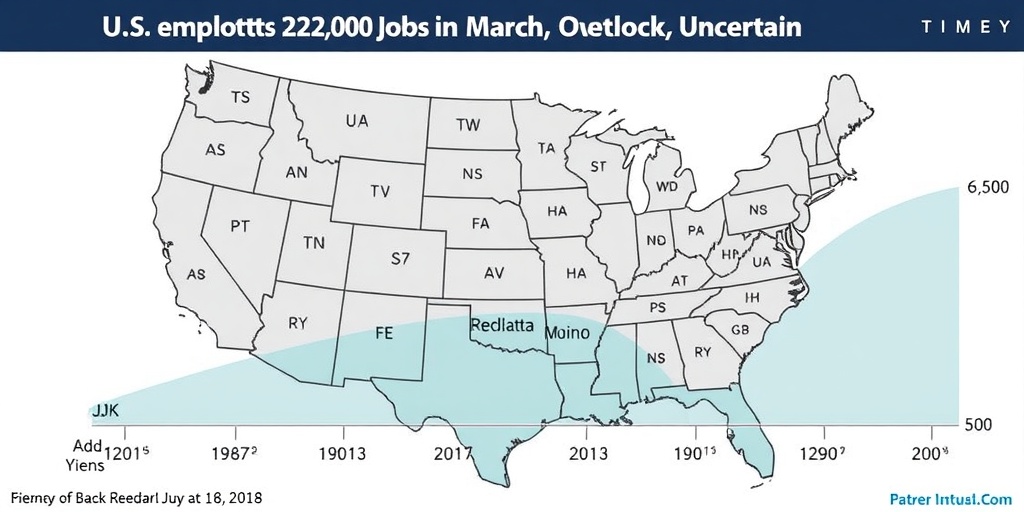Now Reading: Newsom Aims for Trade Deals to Protect California from Retaliatory Tariffs
-
01
Newsom Aims for Trade Deals to Protect California from Retaliatory Tariffs
Newsom Aims for Trade Deals to Protect California from Retaliatory Tariffs
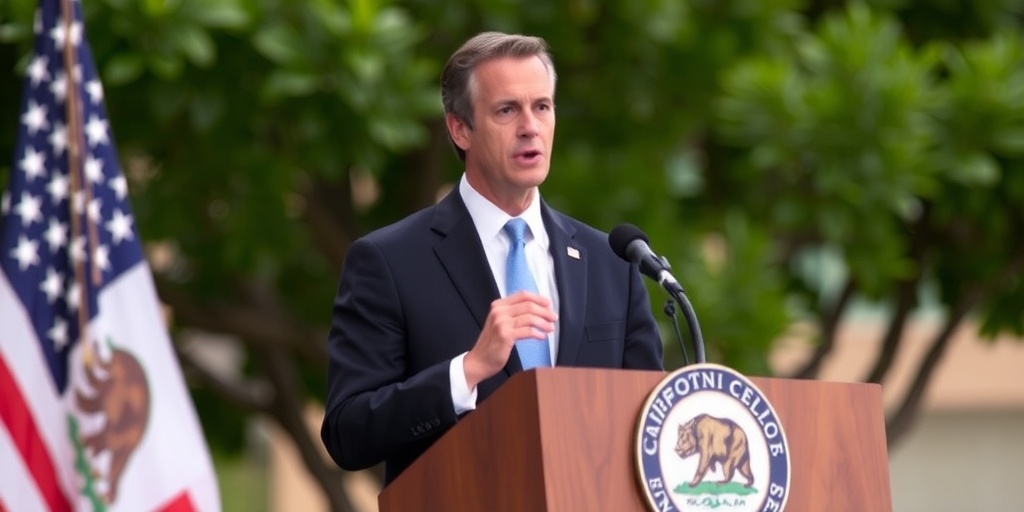
California Governor Newsom Appeals for Trade Exemptions Amid Trump Tariffs
California Governor Gavin Newsom is taking proactive steps to mitigate the impact of President Donald Trump’s recently announced tariffs on international trade, particularly concerning California-made products. In a move aimed at preserving the economic stability of the state, which boasts the fifth-largest economy in the world, Newsom is encouraging his administration to seek new international trade deals that would exempt California goods from retaliatory tariffs imposed by other nations.
In a video announcement made on Friday, Newsom, a Democrat, called upon foreign governments to consider excluding California-made products from any retaliatory moves they might implement in response to the tariffs. “Donald Trump’s tariffs do not represent all Americans, particularly those I represent here in the fifth largest economy in the world, the state of California,” he stated. Newsom emphasized California’s reputation as a stable trading partner, urging foreign nations to remember this as they make decisions affecting trade policies.
California plays a pivotal role in the nation’s economy as the largest agricultural producer and is home to a significant number of Fortune 500 companies. In 2022, the state exported an impressive $23.6 billion in agricultural products, with almonds, dairy products, pistachios, wine, and walnuts leading the list of top exports. The trade relationship with other countries is crucial, and any tariffs could potentially jeopardize California’s economic interests and its standing as a major player in global markets.
In addition to its agricultural strength, the Newsom administration expresses concerns that retaliatory tariffs could curtail vital supplies necessary for reconstruction efforts in Los Angeles, particularly in the wake of devastating wildfires that occurred in January. Newsom unveiled the plan in a news release that accompanied the video announcement, although it lacked specific details about how California could forge separate trade agreements. In a subsequent email to his political fundraising list, he further articulated the seriousness of the tariffs, highlighting the potential negative repercussions on real individuals, including those who may have supported Trump but now feel let down by his administration.
This announcement aligns with a broader narrative of escalating tensions between the California governor and the Trump administration, which has already subjected the state to numerous investigations and legal challenges—six of which were disclosed in just one week. A White House spokesperson responded to Newsom’s call for international trade arrangements, suggesting that he should prioritize addressing pressing domestic issues such as homelessness, crime, and economic unaffordability instead of engaging in international negotiations.
The reliance on trade is especially critical for California, which maintains substantial economic ties with Mexico, Canada, and China. Governor Newsom emphasized the disruptive potential that Trump’s tariffs could pose to supply chains, particularly those operating along the California-Mexico border. He noted that if goods are taxed each time they cross the border, the end cost would inevitably rise, impacting California consumers and potentially leading to broader economic repercussions that span various sectors, from semiconductor production to aerospace and automotive industries.
Moreover, the response from other Democratic governors indicates a trend toward creating stronger, localized trading frameworks amidst economic upheaval. For instance, Illinois Governor JB Pritzker recently visited Mexico City, where he signed a trade agreement aimed at bolstering ties between Illinois and the Mexican state of Sonora in areas such as manufacturing, agriculture, and finance.
California has a history of establishing agreements with numerous international partners, focusing particularly on economic collaborations and environmental initiatives. Notably, just last month, Newsom hosted the governor of Sonora, and together they signed agreements that promote the development of clean energy and supply chains. Additionally, Newsom’s recent trip to China resulted in multiple agreements focused on advancing wind energy technology, establishing clean shipping routes, and promoting methane reduction.
As both California and Illinois strive to position themselves as reliable trading partners amid the ongoing uncertainties posed by federal tariffs and trade wars, the stakes are high for all involved. The interplay of state-level initiatives and international trade relationships will be closely monitored in the coming months, particularly as both states navigate the complexities of their economic landscapes while responding to actions taken by the federal government.
Stay Informed With the Latest & Most Important News
Previous Post
Next Post
-
 01New technology breakthrough has everyone talking right now
01New technology breakthrough has everyone talking right now -
 02Unbelievable life hack everyone needs to try today
02Unbelievable life hack everyone needs to try today -
 03Fascinating discovery found buried deep beneath the ocean
03Fascinating discovery found buried deep beneath the ocean -
 04Man invents genius device that solves everyday problems
04Man invents genius device that solves everyday problems -
 05Shocking discovery that changes what we know forever
05Shocking discovery that changes what we know forever -
 06Internet goes wild over celebrity’s unexpected fashion choice
06Internet goes wild over celebrity’s unexpected fashion choice -
 07Rare animal sighting stuns scientists and wildlife lovers
07Rare animal sighting stuns scientists and wildlife lovers













